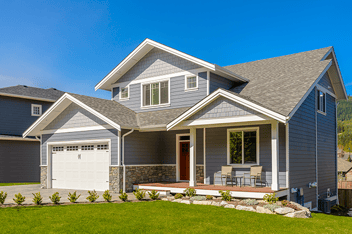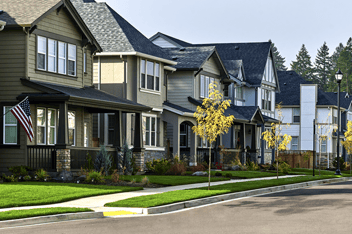 A vacation home is a dream come true for so many people: a quintessential cabin in the mountains or even a beachfront VIP retreat. It is a place to relax and make memories. Owning a second home for snowbirds is a huge part, but most crucially, you must protect this valuable investment place with appropriate insurance coverage.
A vacation home is a dream come true for so many people: a quintessential cabin in the mountains or even a beachfront VIP retreat. It is a place to relax and make memories. Owning a second home for snowbirds is a huge part, but most crucially, you must protect this valuable investment place with appropriate insurance coverage.
We find that the requirements for homeowners regarding vacation home insurance can be different. We're here to guide you through this process for insuring your second home.
Why You Need Second Home Insurance
A standard home insurance policy does not usually include a second residence. In most cases, a vacation home is left unoccupied for a long time; hence, it tends to be susceptible to perils like theft, vandalism, among other calamities, including those of a natural kind. It is for these reasons that second home insurance, or snowbird insurance, was designed: to handle them and give your property comprehensive protection.
Coverage Types for Your Vacation Home
With that said, here are some different types of coverage you might consider for your second home:
Dwelling Coverage
This is the primary coverage that protects the physical structure of your vacation home, including the walls, roof, foundation, and attached structures like garages or decks. Dwelling coverage ensures that if your home is damaged by covered perils such as fire, windstorms, hail, or other natural disasters, the cost of repairs or rebuilding is covered. This coverage is essential to safeguard the significant investment you've made in your second home, ensuring that it can be restored to its original condition after an unexpected event.
Personal Property Coverage
This coverage insures the contents within your vacation home, such as furniture, electronics, appliances, clothing, and other personal belongings. Personal Property Coverage is crucial because it protects your valuables even when you're not residing in the home. Whether it's theft, damage from a fire, or a natural disaster, this coverage helps ensure that you can replace your belongings without bearing the full financial burden yourself. Make sure to take a complete inventory of your personal items and consider additional coverage for high-value items like jewelry or artwork.
Liability Coverage
Liability coverage protects you in the event that someone is injured on your vacation property. For example, if a guest slips by the pool or a neighbor gets hurt while helping you with yard work, this coverage will pay for their medical expenses and any legal costs if they decide to sue. Liability coverage is particularly important for vacation homes because they are often rented out or visited by guests, increasing the risk of accidents. Having sufficient liability coverage can protect your financial assets and give you peace of mind.
Loss of Use Coverage
If your vacation home becomes uninhabitable due to a covered peril, such as a fire or severe storm, Loss of Use Coverage helps cover the additional living expenses you might incur while your home is being repaired. This could include costs for temporary housing, meals, and other essential expenses. This coverage is important because it ensures you won’t be left out-of-pocket for basic needs while your property is restored. It's especially valuable if your vacation home is in a remote location where alternative accommodations might be more expensive.
Vacancy Clause
Because vacation homes are often not occupied year-round, it's crucial to understand the vacancy clause in your insurance policy. A vacancy clause outlines the conditions under which coverage may be reduced or denied if the home is left unoccupied for an extended period. Some policies may require that the home is occupied for a certain number of days each year or maintained in a specific way to prevent issues like frozen pipes or break-ins. Failing to meet these conditions could result in a denial of a claim, so it’s vital to discuss this with your insurance agent to ensure you have the proper protection and understand the implications of leaving your home vacant for extended periods. This might include adding additional coverage or taking certain precautions during your absence.
Additional Considerations
Flood and Earthquake Insurance: Most second home insurance policies don't typically include coverage for flood or earthquake damage. If you bought your vacation home in an area prone to these, have additional coverage for them. Security Measures: Installing security systems, smoke detectors, and other safety devices will ensure that the risk of damage is minimized and may even qualify you for a discount on insurance premiums.
Regular Maintenance: Many common problems can be avoided by simply keeping your vacation home well-maintained. Inspect the property regularly, make any necessary repairs, and be sure that it remains in good condition.
How Niceville Insurance Agency Can Help
We at Niceville Insurance Agency are devoted to assisting you to get the best insurance solutions for your vacation house. We will analyze your needs and compare policies with the help of professional agents to ensure that the best in coverage is put in place. We understand that the other home is not the same and customize our services to bring you personalized protection for your investment.
Do not let your vacation home go unprotected. Talk to us at Niceville Insurance Agency today about our available second home insurance options and receive a free quote. Let us help you have peace of mind and knowledge that you are covered while you enjoy that home away from home.


